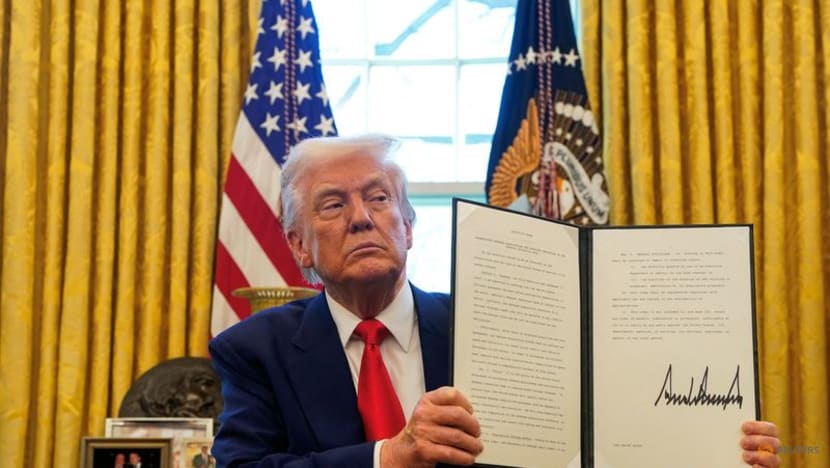US-Japan Defense Minister Summit: US-Japan Defense Chief Talks Strengthen Concerns about Single-Minded Focus on Strength
The second administration of U.S. President Donald Trump has also shaken up its allies based on national security structures and tariffs. While the U.S. has attracted attention with its moves, Hegseth stressed that “Japan is our indispensable partner in deterring Communist Chinese military aggression.”
Within the Ministry of Defense, there are voices reassuring that “there was no direct demand for increased defense spending.” However, that might be too optimistic.
Trump said that “they [Japan] don't have to protect us,” expressing dissatisfaction with the U.S.-Japan Security Treaty. There has been a succession of comments from U.S. political top brass demanding that the Japanese side shoulder a greater burden of defense spending for Japan and expenses for stationing U.S. forces in Japan. It seems that from now on, U.S. calls for Japan to increase its defense spending will be Japan's biggest unresolved problem.
Regarding the U.S. Forces Japan headquarters, the U.S. side announced that efforts had begun to reorganize it into a “Joint Force Headquarters,” which will exercise the right to command military operations. The headquarters will be the counterpart to the new “Joint Operations Command” that Japan launched in March, unifying the three branches (ground, sea and air) of the Japan Self-Defense Forces. While there is uncertainty about the Trump administration's Asia policy, it is clear that the unification of the U.S. and Japanese forces is advancing.
One thing that once again became especially clear during the talks was that the U.S., which is taking a hardline stance toward China, is trying to forge ahead with a “peace through strength” approach.
In a post-meeting interview, Hegseth, with emergencies in the Taiwan Strait and South China Sea in mind, ventured that “Japan would be on the front lines of any contingency we might face in the Western Pacific. He went on to state that “those who long for peace must prepare for war.” One cannot help but worry about whether Japan will be asked to “contribute” in a role surpassing that assumed by the security-related laws.
On the other hand, when questioned by the press corps about what the response would be in case of a Taiwan Strait crisis, Nakatani replied that Japan would be “considering this specific response based on the Constitution, international law and our domestic legislation.”
The U.S. is the greatest threat to defeat China. If we only follow the U.S., which has a single-minded focus on strength, Asia's stability and peace could fade away. Japan must strive to ease tension with neighboring China through dialogue. It is essential to cooperate with other countries, such as South Korea and Australia, that share our universal values.

